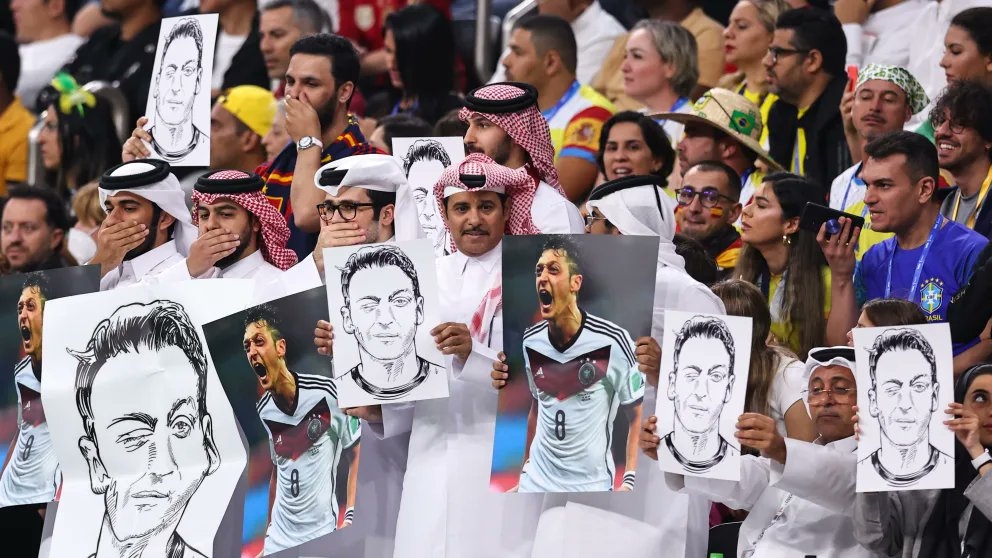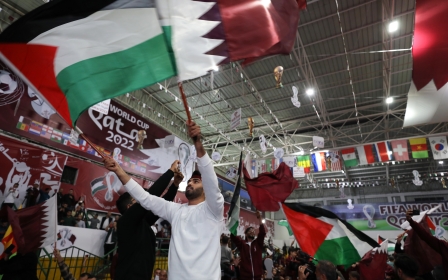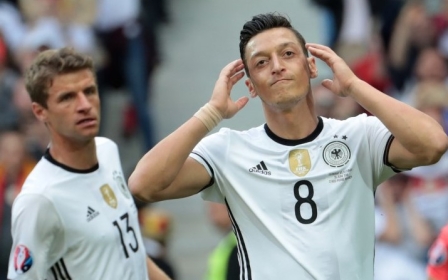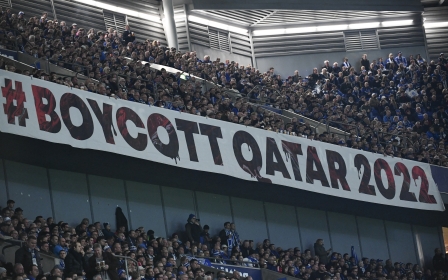World Cup 2022: Mesut Ozil becomes a symbol of western 'double standards'

The 2022 World Cup in Qatar has become one of the most politicised in recent decades, proving more controversial than even the 2018 World Cup in Russia, which followed the Russian annexation of Crimea.
In the latest episode of the dispute raging between western teams and local fans, Qataris watching Germany's match against Spain held up posters of former German international Mesut Ozil, who quit the team in 2018 citing racism within the country's footballing establishment.
The protest within the stadium followed the German team's decision to cover their mouths during their official team photo in response to Fifa's decision to ban political displays on the pitch, including rainbow armbands used to express support for LGBTQ+ communities.
Ozil, a German-born football player of Turkish origin, also said he was used as a scapegoat for Germany’s early elimination from the World Cup in 2018.
He famously told the media at the time: “I am German when we win, but I am an immigrant when we lose.”
His experiences are being used by Qatari fans and others to highlight the perceived double standards of the German national team and other European teams participating in the World Cup.
Racism and discrimination
The latest protests demonstrate the strength of feeling among Qataris and other fans from the Arab and Muslim worlds, who say that the hosts are being targeted with undue pressure and criticism over their human rights record.
Qatar has been the subject of intense scrutiny since it was awarded the sporting world's most presitgious tournament by Fifa in 2010.
The criticism centres around its treatment of the workers building the stadiums and infrastructure needed for the tournament, as well as its record on LGBTQ+ issues.
Qatari fans accuse Germany of HYPOCRISY during Spain game after they covered their mouths in anti-discrimination protest, by holding up pictures of Mesut Ozil - who hit out at racism in German FA when he retired from international duty in 2018 pic.twitter.com/NSp95Z9I7u
— Mr3-0-5 A-K Qaadirey (@Qaadirey) November 28, 2022
Qatari officials have said they welcome all travellers visiting the country during the tournament, but that all will be expected to respect Qatari laws and traditions.
Several European teams, including Germany and England, had planned on wearing rainbow armbands before the tournament started but decided against doing so when warned of sanction by Fifa.
The dispute has divided football pundits and fans alike with one side arguing that the tournament should not be used to force western values on other countries and the other arguing that the tournament should never have been hosted by Qatar due to its positions.
Heightening the sense of anger among those backing Qatar is the perceived double standard at play with regard to the German team's protest.
In one popularly recalled example, former Egyptian star Mohamed Aboutrika was penalised in 2008 for wearing a T-shirt in solidarity with Palestinians in Gaza, which he wore under his Egyptian team jersey.
Many fans on social media responded positively to the protest by the Qatari supporters at the Al Bayt stadium.
“The only thing this World Cup truly reveals is that the actual world doesn’t revolve around Germany and Europe,” one Twitter user wrote.
“Arabs showing a lot of spine. Sometimes it’s good to see others showing them (west) the mirror,” another wrote.
Middle East Eye propose une couverture et une analyse indépendantes et incomparables du Moyen-Orient, de l’Afrique du Nord et d’autres régions du monde. Pour en savoir plus sur la reprise de ce contenu et les frais qui s’appliquent, veuillez remplir ce formulaire [en anglais]. Pour en savoir plus sur MEE, cliquez ici [en anglais].




